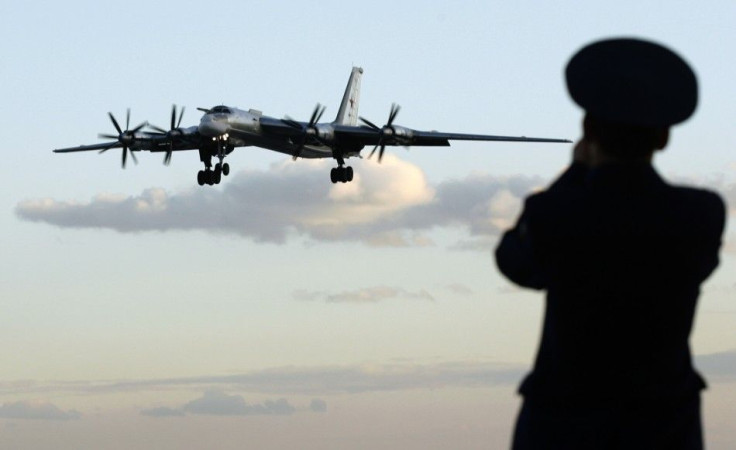Russian Nuclear-Capable Bombers Enter US Guarded Alaska Airspace Zone

Russian military bombers capable of delivering nuclear warheads have reportedly buzzed into the Alaskan airspace, which happened to be a U.S. guarded air defence zone.
The Washington Free Beacon reports the intrusion happened on April 22. Citing unidentified defence officials, it was found two Tu-95 Bear H bombers flew into the Alaska zone. But unlike with earlier incursions, the U.S. didn’t scramble its interceptor jets to trail after the bombers.
Navy Capt. Jeff Davis, a spokesman for the U.S. Northern Command and North American Aerospace Defence Command, or NORAD, didn’t confirm the incursion, but did say there were no jets dispatched to intercept the intruding Russian aircraft. Officials believed the aircraft’s flyby could be the start of Russia’s long-range aviation spring training cycle.
The incident, however, serves as the first Russian bomber incursion of a U.S. defence zone for 2015. Officials told the Free Beacon more could happen in the next month, and that they are actually expecting them to happen.
In 2014, U.S. and Canadian jets intercepted Russian bombers at least six times on different occasions, including:
- Two U.S. F-22 fighters intercepted two Bear bombers west of Alaska’s coast on April 2, 2014;
- Two F-22s intercepted four Bears and one refuelling tanker near Alaska. Two of the Bears later flew near the California coast and were intercepted by two F-15s on June 9, 2014;
- NORAD notes a “spike” Russian aircraft operating in and around the U.S. ADIZ in early August 2014;
- Two F-22s intercepted two Russian IL-78 refuelling tankers, two Russian Mig-31 fighter jets and two Bear long-range bombers in the ADIZ west of Alaska on Sept 17, 2014. The Russian aircraft flew a loop south, then turned west toward Russia;
- Two Bears were intercepted and identified by two Canadian CF-18 fighters in the western reaches of the Canadian ADIZ, in the Beaufort Sea on Sept. 18, 2014; and,
- Two CF-18s intercepted two Bears near the Beaufort Sea off Canada’s coast on Dec. 8, 2014.
The reported intrusion of the Tu-95 Bear H bombers follows the April 7 incident over the Baltic Sea where a U.S. RC-135 reconnaissance aircraft got intercepted by a Russian jet. The Pentagon alleged the other party’s move was provocative and dangerous. Russia maintained the US plane had been "steadily moving towards the Russian state border."
To report problems or to leave feedback about this article, email: e.misa@ibtimes.com.au.




















